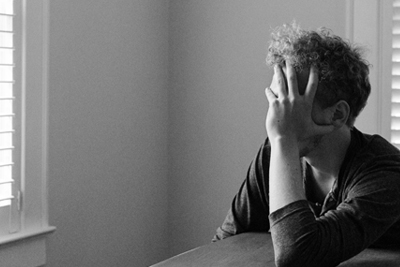Opiates and Their Path of Destruction
According to the Centers for Disease Control, 91 Americans die each day from an opioid overdose. Millions of lives are affected by opioid abuse, including the individuals struggling with the abuse and those who love them and want to help.
In the past, physicians have been graded on the level of service they provide to patients. Until recently, one of the major criteria for patient care has been how well they control pain. The lack of available options for chronic pain control has helped contribute to the current crisis. Consequently, the healthcare community has had to shift its focus from keeping patients pain-free to getting and keeping patients off opiate painkillers. This creates another sort of epidemic; leaving millions of people with no other options for pain relief, and the choice of illegally acquiring their current supply, or facing the potential for a painful detox and withdrawal.
Many individuals have become dependent on opiates due to severe injuries, or post-operatively for pain management. Ultimately, we are left with a population of patients who continue to suffer from chronic pain without the option of continuing their current doses of opiates. Long-term opiate usage is very clearly not the answer; in fact, it can actually worsen pain. This phenomenon is called opioid hyperalgesia, or quite simply, opiate excessive pain. It is RCBM’s philosophy that opiate usage extending beyond two weeks can lead to an increase in addiction potential.

The first step in achieving sobriety and functioning off opiates is determining how much of the pain is in specific areas of the body versus how much of the pain is being caused by the opiate itself. Patients who have ADHD are also much more prone to becoming opiate-dependent. Individuals with ADHD are deficient in dopamine, which is the brain’s stimulant. The human brain is an intelligent organ that needs constant stimulation. Without it, the brain seeks stimulation from the highest source, whether the patient intends to or not. That is what causes distractibility and hyperactivity. In addition, the most stimulating human experiences are pain, fear, sadness, and anger. All of these lead to a feeling of desperation to self-medicate.
Initially, when an ADHD patient is prescribed an opiate, they may feel a sense of relief beyond their expected local pain. Those with ADHD may often experience an increase in energy, or a reduction in both anxiety and depression. The initial “high” is quick to fade, as opiates so closely mimic the brain’s own dopamine, that it signals an “off switch”. The limited amount of dopamine that the patient produces continues to decline with continued use, leading to a worsening of pain, fear, sadness, and anger.
The first step to treating an opiate dependence is to complete a thorough psychiatric evaluation. Defining the underlying condition that led to the need to self-medicate will ensure that after detoxification, the patient can maintain sobriety. Often times we uncover an underlying ADHD diagnosis, major depressive disorder, generalized anxiety disorder, or bipolar disorder, and even a combination of syndromes. At RCBM, being able to undergo a safe and comfortable detox is our top priority. At the initial visit, our team will make a determination if the patient is suited for an outpatient detox. Only then will a treatment plan occur. Our team of seasoned professionals are savvy to the practice of safe detoxification for patients and understanding that a withdrawal will almost never be free from discomfort. After the detox is complete, we can begin treating the underlying condition, yielding great relief, and a reduction in cravings. Ongoing treatment will include psychotherapy to address coping skills, symptoms management and psychoeducation, as well as medical management. It is this collaborative approach that leads to the highest success rates in sobriety.
There are many resources available to fight the disease of addiction. Vivitrol is one of the most effective medications currently available. It is a once per month injection that blocks the effects of opiates and alcohol. Once a detox has been complete, Vivitrol can be administered. For 30 days, it reduces cravings greatly, and in the event of relapse, patients cannot become drunk or high. Vivitrol has saved countless lives, prohibiting lethal overdoses.
Treating addiction is the passion of our team of seasoned professionals, and if you are in need of these services, we can promise compassionate, respectful, judgment-free care.
This blog was written by Aliya Pasik, PA-C.












